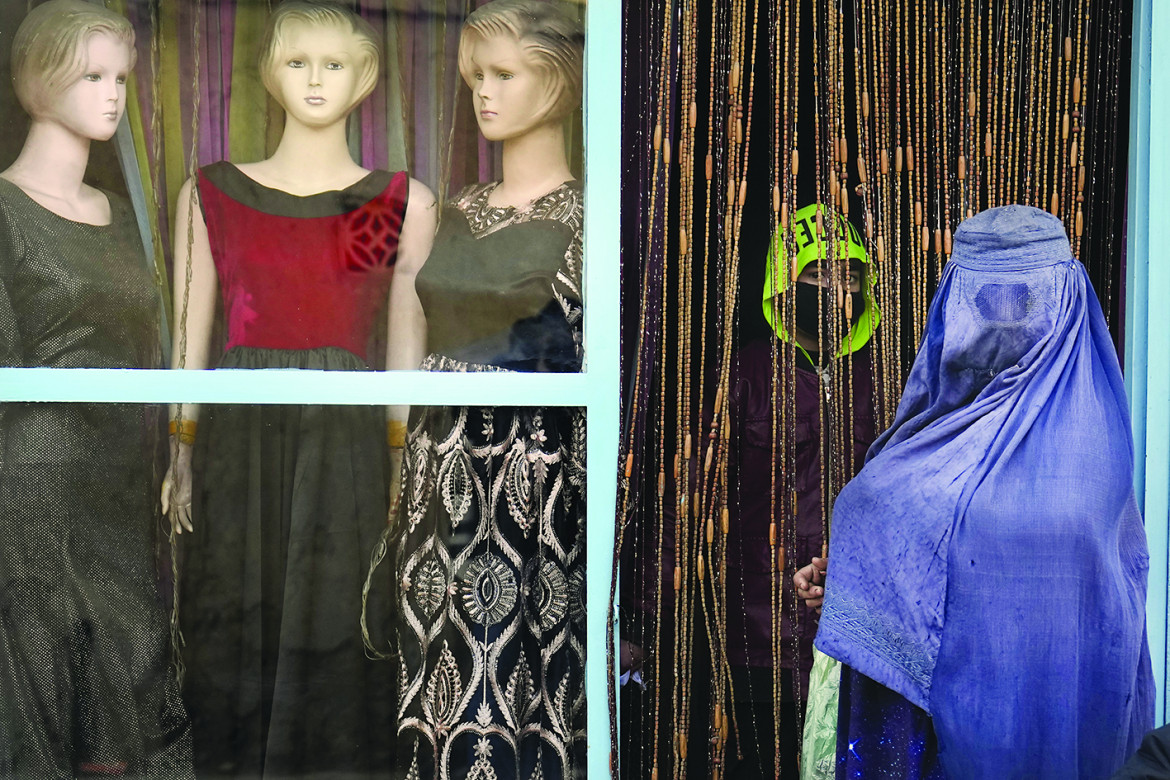Reportage
Taliban continues its war on women: ‘Burqa, or stay home’
The decree, similar to the one adopted in the times of the first Emirate, in the second half of the 1990s, is only the latest step in the gradual institutional work carried out by the Taliban to restrict women’s freedoms since they returned to power.

“Wear the burqa, or stay home.” On Saturday, in an official all-male ceremony where the Ministry of Women’s Affairs once stood, the Taliban made a new decree official.
It bore the signature of the Amir Ul-Mumineen (“Leader of the Faithful”) Haibatullah Akhundzada, but it was made public at the headquarters of the Ministry for the Promotion of Virtue and Prevention of Vice.
It said that “all women who are neither too old nor too young will have to cover their faces in public,” preferably “with a chadori [burqa] which is part of our tradition and is a dress that brings honor,” according to a statement by Shir Mohammad, an official of the ministry.
The announcement, which took place in a room full of men, with long, grizzled white beards, wide turbans and looking very self-satisfied, was made by the acting minister Mohammad Khalid Hanafi, at the end of three hours of discussion on the many virtues of garments that cover women from head to toe.
For him, it’s about ensuring that “our sisters live with dignity and in safety,” avoiding that “whenever they meet them, men who are not part of the family might be provoked.” The only solution, according to him, is that “only the eyes” must remain visible.
Women can choose any garment as long as it covers the whole body and is not so tight as to show their forms; and it’s recommended to use what we call the burqa. There will be gradual and increasing penalties for those who do not obey the decree.
These penalties will be applied to the men in the woman’s family, as she is considered their property. A first offense will result in a visit from the Taliban to the household and a verbal reprimand to the husband, father, brother or son; at the second report, a fine will be imposed; at the third, the male relatives will end up before a judge and will risk going to jail for a few days.
Whoever keeps violating the decree will go back before the judge and suffer exemplary punishment. Men who work in the public sector and who have women in their families who do not comply with the decree will be fired or suspended. On the other hand, says the Ministry for the Promotion of Virtue and Prevention of Vice, unless a woman has important commitments, it would be better for her to stay at home in the first place.
The decree, similar to the one adopted in the times of the first Emirate, in the second half of the 1990s, is only the latest step in the gradual institutional work carried out by the Taliban to restrict women’s freedoms since they returned to power.
The objective is to confine them once again in the domestic space, to take away any area of independence and autonomy, after a partial, gradual and difficult conquest of rights and roles for them in public spaces. The decree will have the effect of further inhibiting actions of protest by women and will be an excuse for Taliban militants who control the streets of the city to reprimand, harass and abuse them.
It comes a month and a half after the Taliban’s stunning reversal on March 23, when girls’ high schools should have reopened, but a few hours after the announcement of the Ministry of Education, the leadership changed its mind and decided to keep them closed.
Today it has been 233 days since female students over the age of 11 have been allowed to go to school, and Afghanistan is the only country in the world that prevents them from getting an education.
The new decree will make relations with the international community even more difficult, especially the Euro-Atlantic one, and will be a serious obstacle to the Taliban’s main objective: the international recognition of the Emirate. Furthermore, it will also lead to clashes and social conflicts internally.
The Ministry for the Promotion of Virtue is located in Shar-e-now, right in the center of Kabul, a stone’s throw from the Emergency hospital. For months, signs have been posted on the walls of its headquarters suggesting that women should wear the burqa, covering their entire face.
The women heading for Shar-e-now, a commercial district for the wealthy, don’t look at those signs. They head for the downtown cafes, walking in packs with a confident step. For those in charge, their freedom doesn’t matter: according to minister Hanafi, “Islamic principles and ideology are more important than anything else.”
Originally published at https://ilmanifesto.it/guerra-talebana-alle-donne-burqa-o-restate-a-casa on 2022-05-08
